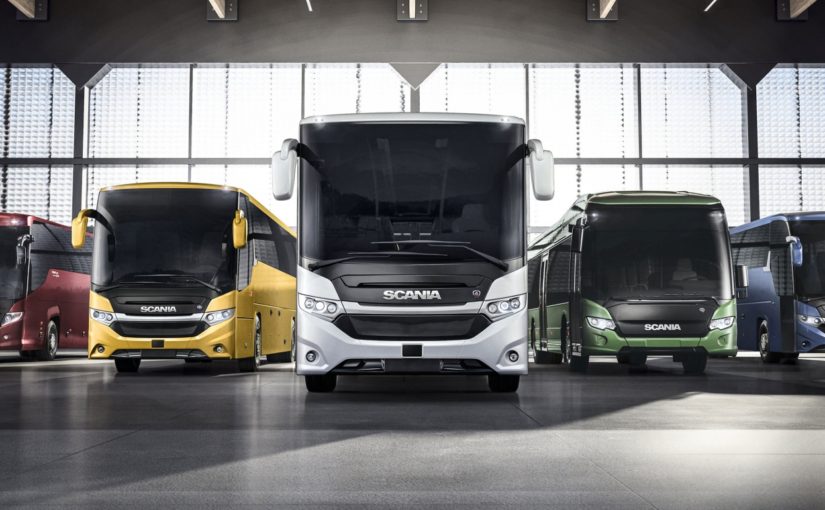
Scania opts for Dassault Systèmes platform to develop new generation of vehicles
Scania, one of the world’s leading commercial vehicle manufacturers, has partnered with Dassault Systèmes to develop a new generation of trucks and buses.
Scania, which is part of the Volkswagen group, employs approximately 46,000 people in 100 countries. It claims to have delivered more than 81,000 commercial vehicles to customers in 2016.
This year, among the new developments for Scania is the expansion of its alternative energy bus range, including hybrid vehicles, a record number of which – 140 – the company has been contracted to supply to public transport authorities in Norway.
Scania has also committed itself to providing clean – or soot-free – buses to 20 cities worldwide. The company has already sold more than 2,500 soot-free buses over the course of 2016, which is more than 30 per cent of its total bus sales.
Additionaly, the company is currently showcasing its battery electric “Citywide” low-floor bus at the BusWorld event, in preparation for a commercial launch next year.
Karin Rådström, head of buses and coaches at Scania, says: “The accelerating urban growth in the world is largely rapid suburbanisation rather than expanding city centres.
“That means longer commuter trips to work and, in fact, suburban public transport presently consumes three times more fuel than city centre transport. Thus, we need a greater focus on finding non-fossil alternatives for these journeys.”
Meanwhile, Scania has launched a new generation of XT trucks for the construction industry, which Scania CEO Henrik Henriksson says is “facing increasing demands for sustainable and cost-effective production”.
Henriksson adds: “We are well aware of the slim margins for many hauliers in this business and we have developed vehicles and solutions to ensure sustained profitability.”
All these complex, technological developments require a platform which can combine the resources of a global operation, such as that of Scania, and find the tiniest efficiencies in time and other resources across the entire process.
In order to integrate its engineering, product development and sales efforts worldwide, Scania has opted for Dassault Systèmes’ 3DExperience platform, which some might describe as a product lifecycle management suite, but with additional features.
Dassault Systèmes says its partnership agreement with Scania formalises the process to utilise the 3DExperience platform and other solutions for innovation now and in the future.
It says the cooperation aims to enable cost-efficient design, testing and validation of the complete range of Scania’s products, which are said to be “modular”.
Dassault Systèmes adds that its 3DExperience platform will enable Scania to improve realistic simulations of functional properties and processes, such as engineering, manufacturing, service and sales.
This will further support Scania in providing the right products at high quality to customers, as well as a more cost- and resource-efficient product development process, claims Dassault Systèmes.
Michael Thel, engineering director, Scania, says: “Scania’s renowned modular system opens up innumerable variants of products and the continuous introduction of design changes.
“This requires a comprehensive repository of designs that can be joined together in building the applications of the customer’s choice.
“The 3DExperience platform will help improve simulation for faster validation of our vehicles. It will also enable full traceability and digital continuity from design to manufacturing throughout our unique virtual product development processes.”
Olivier Sappin, vice president, transportation and mobility industry, Dassault Systèmes, says: “I believe that our 3DExperience vision, so beyond the usual product design focus prevalent in industry today, was key in formulating our approach to Scania’s needs.
“The 3DExperience platform and its ‘Modular Glocal & Secure’ industry solution experience provide digital continuity to accelerate innovation, improve product quality and performance, and reduce costs in the context of mass customization and complexity. Scania will experience these benefits across its entire value stream.”
